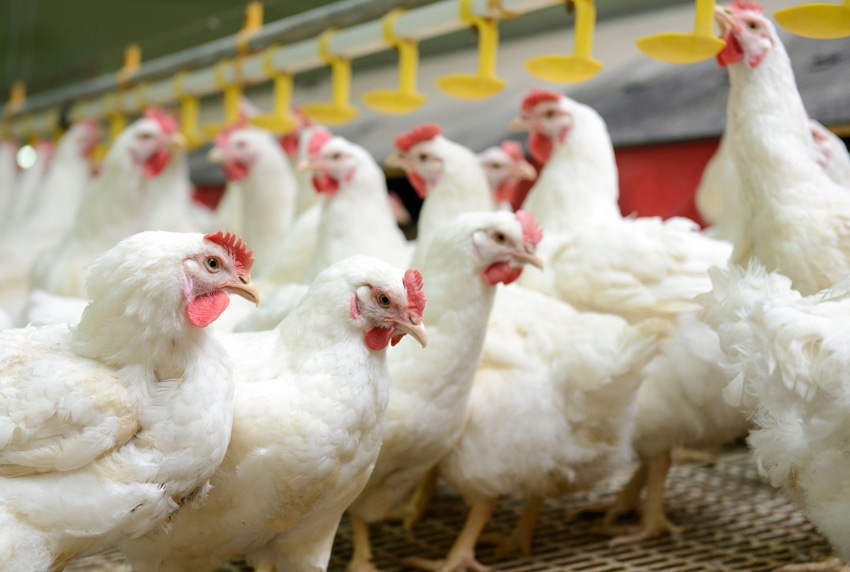USask scientists to develop fecal-based diagnostic tests for broilers
A key step is to identify biomarkers in the chickens’ feces and match them to specific diseases.
October 31, 2023

By Cat Zens
A Western College of Veterinary Medicine veterinary pathologist wants “to get the poop” on developing new biomarker-based diagnostic tests for broiler chickens by running laboratory tests with their feces.
Susantha Gomis, professor and head of the WCVM’s Department of Veterinary Pathology, received $170,000 from the Government of Saskatchewan’s Agriculture Development Fund to lead this research. This is becoming more demanding as a harmful bacterium called Clostidium perfringens, a causal agent of foodborne diseases, is spreading among poultry flocks across Western Canada.
“A number of infections in birds are very common, so we are targeting those [diseases),” says Gomis, whose research particularly focuses on preventing C. perfringens-related infections.
Gomis is collaborating with fellow University of Saskatchewan researchers Musangu Ngeleka, a microbiologist at Prairie Diagnostic Services, and Suresh Tikoo, a professor at the university’s School of Public Health and associate member in the WCVM’s Department of Veterinary Microbiology, to conduct this research work.
The Canadian chicken industry is soon phasing out the prophylactic use of antibiotic drugs in broiler chicken production, and as in human health, antibiotics are only used if a flock’s health is at risk. Despite these efforts, veterinary researchers are seeing an increase in antimicrobial resistance among chickens — raising concerns about how veterinarians and producers can protect flocks from certain diseases.
Timing is especially critical when diagnosing and treating chickens because of their short life span — broiler chickens are five to six weeks old when they’re ready for slaughter. Gomis says that delays in birds getting sent to processing plants due to illness cause costly consequences.
To avoid these issues, Gomis and his collaborators want to develop more rapid diagnostic tests for chickens: “What we are developing is a rapid test — like a COVID-19 test.”
Using metabolomic technologies, the USask scientists aim to develop tests that can identify avian diseases by individual molecules that can be ready quickly — similar to how rapid-strip COVID-19 tests function in human patients. But instead of using nasal and oral samples, the veterinary researchers are collecting fecal samples from chickens.
A key step is to identify biomarkers in the chickens’ feces and match them to specific diseases. Poultry can also contract illnesses caused by bacteria like Clostridium perfringens and Salmonella, which can lead to food poisoning in people.
“It is a food safety issue,” says Gomis.
In this study, the research team are collecting fecal samples from groups of healthy birds and groups of birds infected with Clostridium perfringens. The scientists want to use metabolomics analysis as a diagnostic tool since certain metabolites (small molecules) in fecal samples associate with specific diseases.
“We will then know what we need to do and how [these diseases] are going to be resolved,” Gomis says.
He and his team hope that this research work will help veterinarians to rapidly diagnose diseases in poultry so flocks can be treated accordingly. This diagnostic tool will help to support the poultry industry while also protecting consumers from contracting foodborne diseases from undiagnosed infected animals.
Gomis hopes to complete the feasibility of using this technology to diagnose broiler chicken diseases within the next three years.
“This is meant to be a very intense way of diagnosing, so we know what we need to do and how [these diseases] are going to be resolved or whether [the chickens] need antibiotics,” he says.
Cat Zens is a fourth-year student in the University of Regina’s School of Journalism. She is working as a research communications intern at the Western College of Veterinary Medicine (WCVM) in 2023.
You May Also Like



